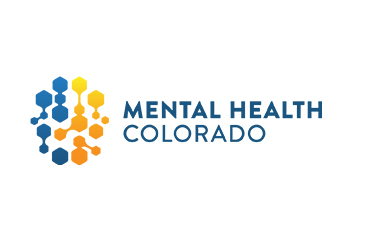 As a bedside surgical RN, and a soon-to-be clinical nurse specialist and nurse researcher, I am excited to be partnering with Voices for Non-Opioid Choices (Voices). Before becoming a nurse, I worked with patients with serious mental illness (SMI) living in the community and frequently noticed that they weren’t fully addressing their health concerns. During this time, I had the opportunity to work with a diligent and caring psychiatric nurse who purposely separated clients’ mental illness symptoms and chronic disease symptoms. Observing her personalized care to her patients inspired me to pursue a career in nursing.
As a bedside surgical RN, and a soon-to-be clinical nurse specialist and nurse researcher, I am excited to be partnering with Voices for Non-Opioid Choices (Voices). Before becoming a nurse, I worked with patients with serious mental illness (SMI) living in the community and frequently noticed that they weren’t fully addressing their health concerns. During this time, I had the opportunity to work with a diligent and caring psychiatric nurse who purposely separated clients’ mental illness symptoms and chronic disease symptoms. Observing her personalized care to her patients inspired me to pursue a career in nursing.
As a bedside nurse on a surgical unit, I realized again that there was a lack of awareness of mental illness’s role in medical treatment and recovery. In addition, there were few resources in the hospital to help patients cope with this stress, and I often wondered what happened to my patients when they went home. Frustrated with the scarcity of research in mental health care during medical/surgical admissions and recognizing the importance of research implementation, I started a dual DNP/Ph.D. program to become a clinical nurse researcher.
At the beginning of my studies, I reviewed multiple articles implicating mental illness as a risk factor for prolonged postoperative opioid use (PPOU), placing them at higher risk for substance use disorder (SUD) and overdose. Having worked with many individuals with SMI, I knew that they were at risk for SUD even without surgery, so these findings were particularly compelling to me. My Ph.D. project compared the risk for PPOU specifically in patients with SMI, finding that they were nearly twice as likely to develop PPOU than their peers.
I also learned about non-opioid medications and postoperative opioid prescribing protocols that can drastically reduce the number of opioids that patients need for pain management. These protocols are successful because they emphasize patient education and non-opioid alternatives. While education should happen before surgery whenever possible, nurses are uniquely situated to provide continued education and reinforce pain and management expectations. Nurses remain the most trusted profession, and their trust has only increased since the COVID-19 pandemic.[1] Nurses are in a unique position due to time spent at the bedside, our training to be patient educators, and our role in administrating medications, in advocating for our patients to be educated on non-opioid therapies and have them integrated into their care.
My work with Voices has taught me another role that nurses can play as policy advocates. Many treatments, tests, and medications that patients receive are not purely a result of their health care provider’s training but organizational, state, and national policies. In pursuing a career as both a clinician and a researcher, I will use my research training to generate new knowledge and my clinical training to implement that knowledge into practice and policy. With the research community making strides in improving initial opioid prescribing, I am shifting focus to longer-term follow-up and management. As the opioid epidemic intensifies in the wake of COVID-19, rising numbers of individuals are struggling with opioid use disorders. All areas of care, including surgical providers, must be prepared to coordinate and manage care for these patients effectively. I will be examining how provider communication may improve postoperative opioid prescribing through coordinating with outpatient prescribers. This work has important policy implications, such as enhancing access to patient health records across healthcare systems and increasing access to secure forms of provider communication. I am grateful to the team at Voices for the advocacy work that they have done so far and the opportunity to provide my perspective as a nurse researcher.
[1]Saad L. U.S. Ethics Ratings Rise for Medical Workers and Teachers. Gallup. https://news.gallup.com/poll/328136/ethics-ratings-rise-medical-workers-teachers.aspx. Published 2020. Accessed.



